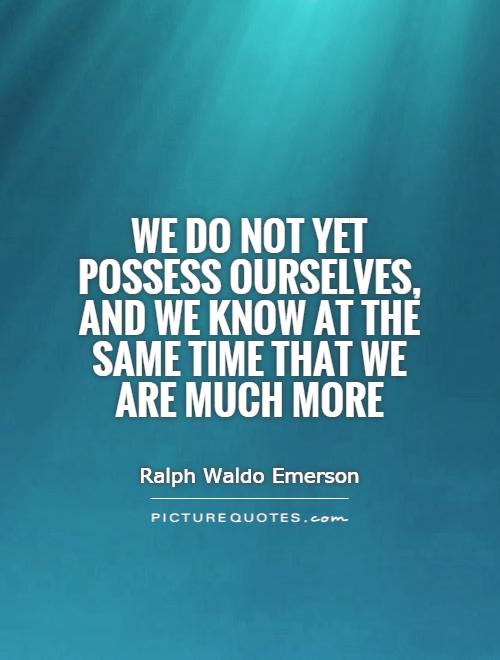We do not yet possess ourselves, and we know at the same time that we are much more

We do not yet possess ourselves, and we know at the same time that we are much more
Ralph Waldo Emerson, a prominent figure in the transcendentalist movement of the 19th century, often explored the concept of self-discovery and self-realization in his writings. One of his most famous quotes, "We do not yet possess ourselves, and we know at the same time that we are much more," encapsulates the idea that human beings are constantly evolving and growing, and that there is always more to discover about ourselves.Emerson believed that each individual has a unique essence or spirit that is waiting to be fully realized. He argued that society and external influences often hinder our ability to truly understand ourselves and reach our full potential. In order to truly possess ourselves, Emerson believed that we must look inward and connect with our innermost thoughts and desires.
Emerson's quote suggests that there is a disconnect between who we are currently and who we have the potential to become. It implies that there is a deeper, more authentic version of ourselves waiting to be uncovered. This idea aligns with the transcendentalist belief in the inherent goodness and potential of human beings.
Emerson's philosophy encourages individuals to embrace their individuality and strive for self-improvement. By recognizing that we are "much more" than we currently perceive ourselves to be, we can embark on a journey of self-discovery and personal growth. This process of self-realization involves shedding societal expectations and embracing our true selves.












 Friendship Quotes
Friendship Quotes Love Quotes
Love Quotes Life Quotes
Life Quotes Funny Quotes
Funny Quotes Motivational Quotes
Motivational Quotes Inspirational Quotes
Inspirational Quotes